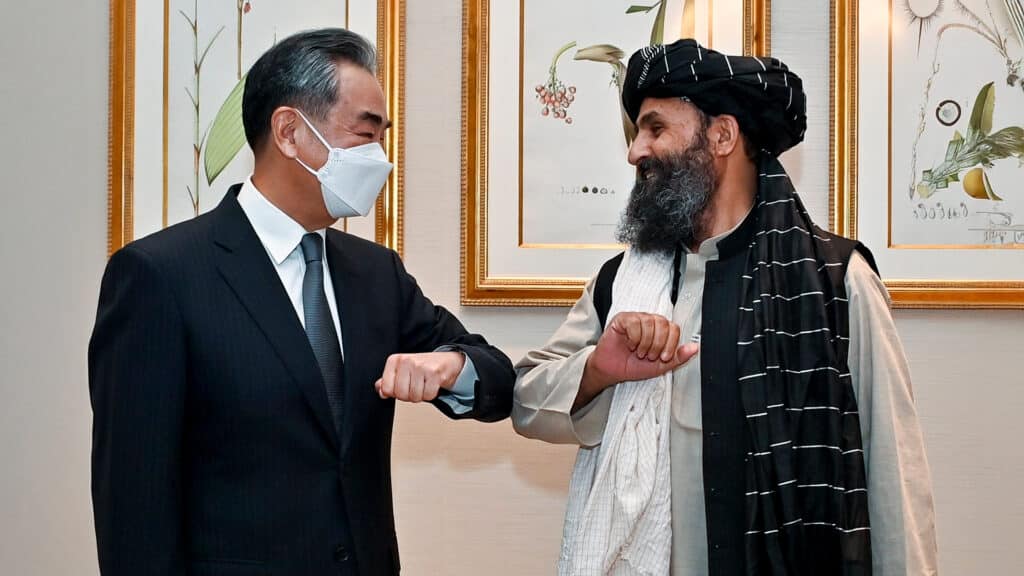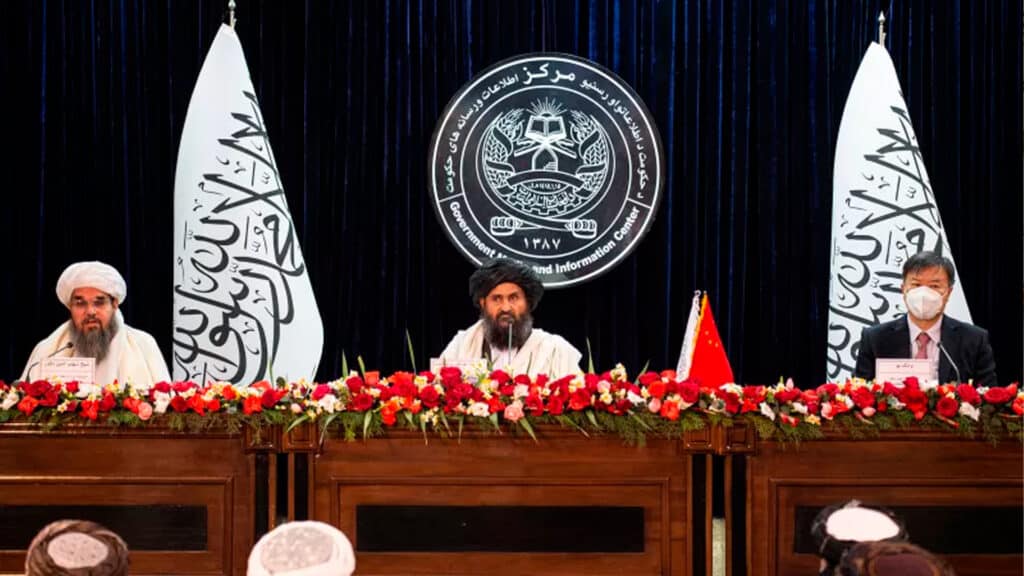Realpolitik in Kabul: How China adapts to life with the Taliban

China is quietly recalibrating its approach to Afghanistan, gradually normalizing relations with the Taliban without committing to major financial outlays or military engagement. A recent report from the Carnegie Endowment for International Peace argues that Beijing is instead relying on regional security partnerships and Belt and Road–related frameworks to anchor its strategy.
The report by M. Ramin Mansoori of the University of Pittsburgh’s Center for Governance and Markets notes that after the U.S. withdrawal on Aug. 15, 2021, China maintained open channels with the Taliban and continued engaging with Afghan society.
Building soft-power foundations
Longstanding academic and cultural programs helped lay the groundwork for these ties. Prior exchanges created networks of Chinese specialists fluent in Dari and Pashto, as well as Afghans who had learned Chinese. In recent years, Chinese universities have established dedicated departments for both languages, cultivating a new generation of analysts trained to interpret Afghan politics, society, and culture.
Post-2021 engagement with the Taliban
Beijing intensified its engagement once the Taliban regained control. Chinese officials repeatedly invited Taliban representatives to visit China, where delegations were introduced to China’s development model and governance practices. According to the Carnegie study, Chinese hosts have made a point of respecting Taliban religious norms during such visits — providing halal meals, accommodating traditional dress, and arranging prayer opportunities.

To ease Taliban concerns about Beijing’s treatment of Muslims, visiting delegations are often taken to one of the few officially recognized mosques still operating in China. These visits are meant to demonstrate that some forms of Islamic practice continue to exist within the country’s state-managed religious framework.
Counterterrorism as a central driver
In April 2022, China secured a pledge from the Taliban that Afghan soil would not serve as a base for groups threatening neighboring countries. Beijing has long been concerned about militants of Uyghur origin allegedly operating in Afghanistan and Syria, and the report suggests the Taliban have increased pressure on such groups in response.
China’s counterterrorism strategy includes direct cooperation with Afghanistan’s neighbors. Through the Quadrilateral Cooperation and Coordination Mechanism, which brings together China, Afghanistan, Pakistan and Tajikistan, members share intelligence and work to secure borders deemed critical to Xinjiang’s stability.
Calculated economic engagement
Kabul, for its part, hopes that Chinese companies will help revive Afghanistan’s economy by investing in mineral resources and large-scale extractive projects. So far, Chinese activity has centered on copper, oil and gas ventures, and other resource-focused initiatives the Taliban view as priorities.

In October 2024, Beijing began offering zero-tariff access to Afghan exports. This step signals deeper commercial ties despite political risk.
China remains cautious due to security concerns, sanctions, and volatility. Major firms use smaller subsidiaries to operate in Afghanistan, limiting risk for parent companies.
Humanitarian support with a strategic lens
Mansoori notes that Chinese humanitarian aid follows a similarly pragmatic pattern. Assistance is often directed toward areas visible to senior Taliban officials, helping Beijing cultivate goodwill within the ruling movement. While the financial return from such programs may be limited, they reinforce a political environment Beijing considers favorable to its interests.
Strategic presence on the ground
By keeping a foothold in Afghanistan, China gains a clearer view of the country’s complex ethnic and tribal dynamics, geographic challenges, and evolving power structures. According to the Carnegie study, this presence supports China’s overriding goal: preventing hostile or anti-China forces from gaining traction in Afghanistan.

